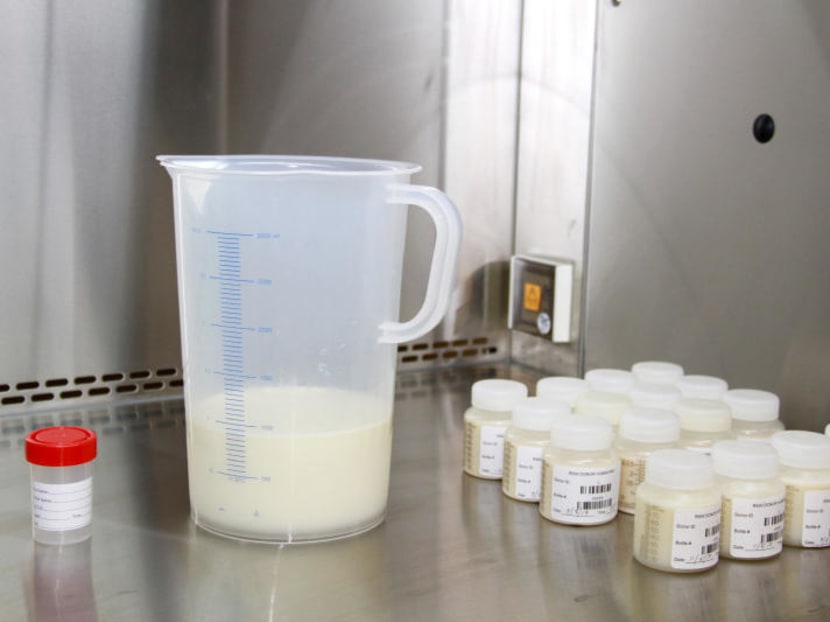Still early days, but milk-sharing seeing a boost
SINGAPORE — It could have diverted donors away from them. But somewhat surprisingly, since Singapore’s first-ever milk bank at KK Women’s and Children’s Hospital was launched last month, informal milk-sharing networks are seeing more stepping forward.

Raw human milk at the human milk bank in KK Women's and Children's Hospital on August 17, 2017. Photo: Esther Leong/ TODAY
SINGAPORE — It could have diverted donors away from them. But somewhat surprisingly, since Singapore’s first-ever milk bank at KK Women’s and Children’s Hospital was launched last month, informal milk-sharing networks are seeing more stepping forward.
The information publicised during the opening of the milk bank helped to raise awareness of the issue, the networks said.
Ms Khatim Hamidon, the administrator of Human Milk for Human Babies-Singapore’s Facebook page, said that anecdotally there have been more sharing milk through their platform.
“Mums see it as something altruistic to share with other mums, and I’m heartened by that,” she said. “There was even this one mum who had a still-birth, and she wanted her milk to benefit another baby, so that was really heartwarming … It’s nice to see all this sharing, love, and compassion.”
Breastfeeding Mothers’ Support Group (BMSG) president Elaine Chow said that previously, milk-sharing was feared as “unhygienic”.
While it is early days yet, she expects the practice to “get a boost”, citing how several logistics companies have approached her to ask how they can help transport donated milk to the milk bank.
Ms Chow added: “It’s a good sign that … people come to know of and believe in donated milk as an alternative method of feeding.”
Noting the milk bank’s stringent criteria for recipient babies, informal milk-sharing networks remain valuable, groups say.
To draw milk from the bank, a baby must be born at less than 32 weeks, weigh no more than 1.8kg at birth and be at high risk of, or is diagnosed with, a lethal gut condition called necrotising enterocolitis.
Addressing concerns about the lack of regulation over informal milk-sharing platforms, Ms Khatim said: “It’s all informed choices, being educated, and aware of what are you choosing. When mums find out about who they get the milk from (through this platform), and their diet … there’s a level of trust and rapport there.”
For accountant Jasmine Tang, 32, she is just thankful other mothers are willing to “bless” her with their extra supply. Because of a medical condition she suffers from, she had to turn to her friend for breast milk to feed her one-month-old daughter.
Recalling the anguish and pain, she said: “I felt very guilty when I can’t give the best for my baby … I just felt like I’m a useless mother as my baby cannot drink my milk.”






